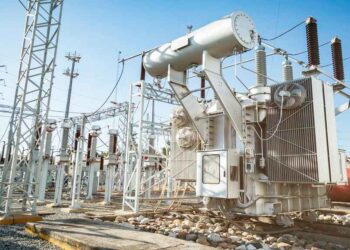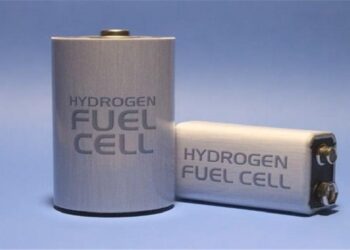At the Hannover Messe 2017, Siemens will be demonstrating how industrial companies of all sizes can benefit from the digital transformation.
The central focus of the 3,500-square meter booth in Hall 9 will be on the company’s further extended portfolio for the achievement of end-to-end digitalization, known as the “Digital Enterprise”. An array of examples from practice will allow visitors to experience applications and innovations demonstrating the competitive benefits to be gained by merging the real and the virtual worlds. These include greater flexibility, efficiency and quality as well as a reduced time-to-market.
The examples on show range from smart energy management systems through customized food and pharmaceutical production to industrial-scale additive manufacturing based on innovative automation and drive technology. Siemens is also driving forward the expansion of its cloud-based, open IoT operating system MindSphere with the addition of new partnerships, interfaces and apps.
At the Hannover Messe, Siemens will be using the example of milk production to demonstrate ways in which producers in the food and beverage industry can use digitalization solutions all along the line, ranging from milk processing to filling, packaging and labeling, enabling a flexible response to changing market requirements such as the growing diversity of flavors.
The rapidly changing requirements of consumers are placing manufacturers under increasing pressure to produce customized products at short notice while assuring a consistently optimized standard of quality. The key to addressing all these demands is digitalization, which allows producers to simulate, test and optimize products, production processes and plants within a completely virtual environment on the basis of a “digital twin”. In this way, not only can the manufacturing and process industries significantly enhance their innovation speed and productivity, but they can also define their own new business models. Machine and plant builders can also reap the benefits of this development and pass them on their own customers.
To support companies undergoing the digital transformation, Siemens is extending its portfolio for the Digital Enterprise across the four cornerstones of industrial software and automation, industrial communication, industrial security and industrial services.
Integrated solutions for digital power distribution
Energy systems are changing the world over, and with them the demands made on electrical power distribution in industrial plants. Influencing factors here are changed load requirements, a growing number of electrical loads and the increasing networking and automation of industry, buildings and infrastructure. Added to these are more stringent standards and increased requirements imposed on corporate energy management. As a result, the planning and operation of electrical power distribution are becoming ever more complex, and the technical requirements imposed on the underlying systems and products are growing – particularly in terms of their flexibility and their communication and integration capability. For industrial enterprises, security of supply and the availability of economical components are decisive factors.
With its Totally Integrated Power portfolio, Siemens will be showcasing the integration of electrical power distribution systems and devices into automated production environments, impacting on every phase of the value adding process: Automated engineering, failsafe power supply, integration into holistic energy efficiency concepts and industrial automation, and linking to cloud platforms.
“Our integrated solutions for digital power distribution mean that our customers can concentrate fully on their core business,” says Beatrix Natter, CEO of the Transformers Business Unit of Siemens Energy Management. “We enable our customers to develop their own energy management system and so benefit from the possibilities offered by the energy market.”
Siemens will be illustrating these benefits at the show on the basis of a concrete application: Using a production machine, it will demonstrate the electrical engineering project of a control cabinet on the basis of a “digital twin” fitted with components fully integrated in the TIA Portal for automated production control, as well as the capture of energy and plant data and its connection to MindSphere.
Also showcased at the Siemens booth in Hanover as another example of digital power distribution will be the Sivacon S8 low-voltage switchgear. Using software, communication-enabled switchgear and motor controls can be operated and monitored, and their data made available for higher-level automation and energy management systems or for cloud-based analytical systems.
In addition to its main booth in Hall 9, Siemens will also be presenting its portfolio in the field of PLM software in close cooperation with its partners in Hall 6. Hall 24 will feature an exhibition of real customer applications from wide-ranging sectors of industry involving gears and couplings from the Flender product family. Also on show will be the latest development from Flender’s torsionally rigid all-steel lamella coupling series: the new N-ARPEX coupling with improved performance data.
For further information on Siemens at the Hannover Messe 2017,
please see www.siemens.com/press/hm17and www.siemens.com/hannovermesse
Siemens AG (Berlin and Munich) is a global technology powerhouse that has stood for engineering excellence, innovation, quality, reliability and internationality for more than 165 years. The company is active in more than 200 countries, focusing on the areas of electrification, automation and digitalization. One of the world’s largest producers of energy-efficient, resource-saving technologies, Siemens is a leading supplier of efficient power generation and power transmission solutions and a pioneer in infrastructure solutions as well as automation, drive and software solutions for industry. The company is also a leading provider of medical imaging equipment – such as computed tomography and magnetic resonance imaging systems – and a leader in laboratory diagnostics as well as clinical IT. In fiscal 2016, which ended on September 30, 2016, Siemens generated revenue of €79.6 billion and net income of €5.6 billion. At the end of September 2016, the company had around 351,000 employees worldwide. Further information is available on the Internet at www.siemens.com









































